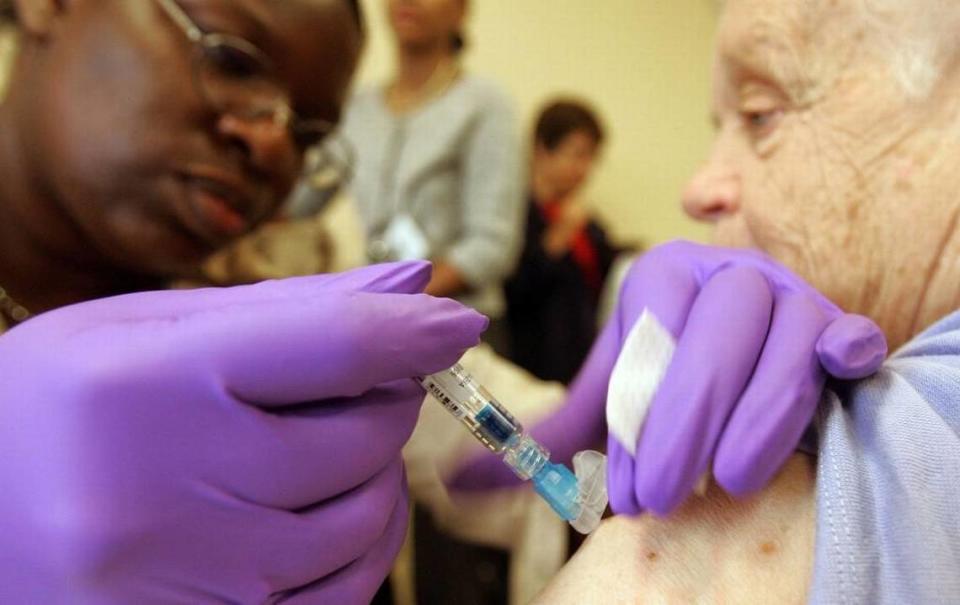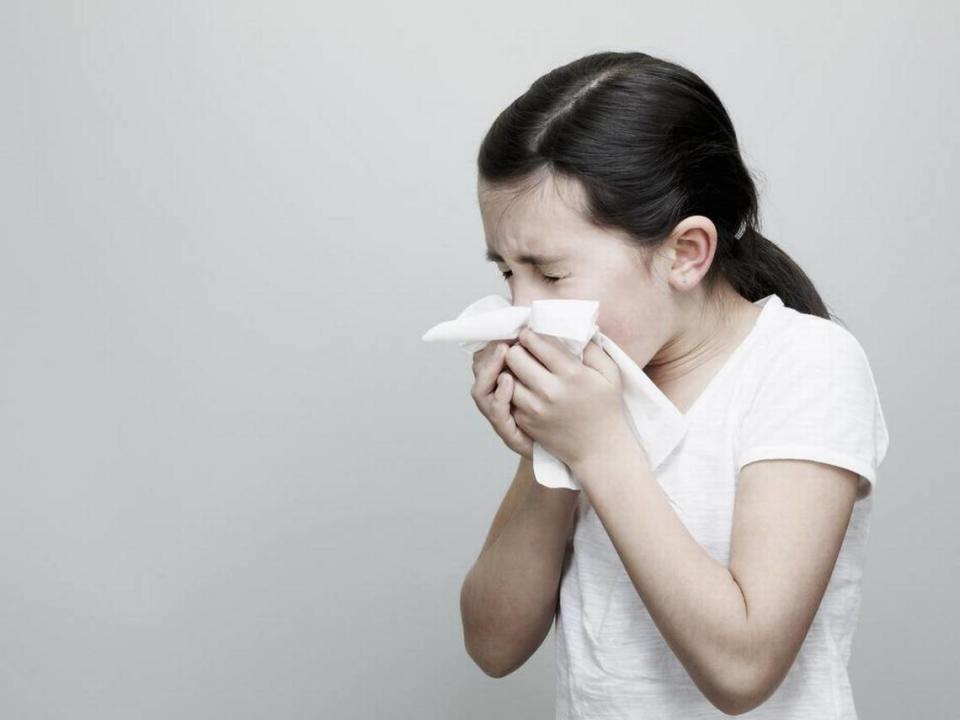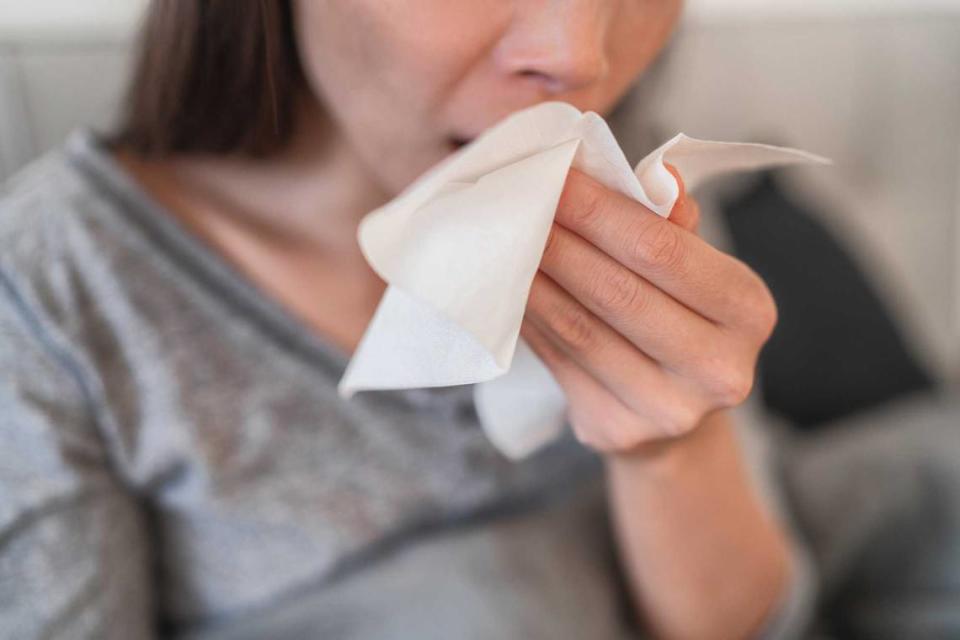Is it COVID, flu or allergies? California health experts tell how to identify symptoms
Congestion? Check.
Sneezing? Check.
Coughing? Check, check and check.
With a number of illnesses currently circulating throughout California and seasonal allergies irritating immune systems this spring, how do you determine what you have?
“Many respiratory viruses, including influenza, (respiratory syncytial virus) and COVID-19, can cause cold-like symptoms,” the California Department of Public Health wrote in an email statement to The Sacramento Bee on Wednesday morning.
Though many respiratory viruses, including the flu, coronavirus, and RSV, peak between October and March, they circulate year-round in California, the department’s website says.
As of mid-March, influenza, coronavirus, RSV and norovirus were coursing through the state.
Unless you are at risk for a serious illness, such as pregnant people, older adults and people with weak immune systems, the state health department said “it isn’t always necessary to know which virus is causing symptoms.”
If you want to know what illness is currently attacking your immune system, however, here’s what California health officials said to do:
Do I have the flu?
According to the California Department of Public Health’s most recent weekly report, the percentage of influenza detection in California is inching upward.
From March 17 to March 23, flu numbers were up by 5.3% compared to the previous week — which showed numbers were up by 5%.
During this time frame, nine flu-related deaths were reported in California.

What are flu symptoms?
According to the Centers for Disease Control and Prevention, flu symptoms include:
Fever or chills
Cough
Sore throat
Runny or stuffy nose
Muscle, head or body aches
Tiredness
Vomiting and diarrhea, which are more common in children
How do I know if my illness is the flu?
To determine if your symptoms are being caused by the flu, the California Department of Public Health said you should “seek testing by contacting (your) medical provider.”
According to CDC guidelines, these tests require a health care provider to swab the inside of your nose or back of your throat, and then send the swab for testing.
Examples of tests include reverse transcription polymerase chain reaction, viral culture and immunofluorescence assays.

How do I know if I have COVID-19?
According to the CDC, possible symptoms of COVID-19 include:
Fever or chills
Cough
Shortness of breath or difficulty breathing
Tiredness
Muscle, head or body aches
New loss of taste or smell
Sore throat
Congestion or runny nose
Nausea or vomiting
Diarrhea
“Symptoms may appear two to 14 days after exposure to the virus,” the CDC website says.
Although flu and COVID-19 share common symptoms, the California Department of Public Health said you can “use COVID-19 over-the-counter home tests” to determine your illness.
As of Friday, the latest weekly update by the department shows 2.4% of tests came back positive for COVID-19.
In the past week, roughly 800 individuals were hospitalized due to the virus.
From Oct. 1 to March 30, a total of 3,145 coronavirus-related deaths were reported in California
Is it RSV?
RSV infections typically target individuals during late fall, winter and early spring, according to the CDC.
RSV detections appeared to be trending upward in California, as of Friday.
While roughly 12 cases of RSV were reported in California on March 23, almost 16 cases were reported by March 30, according to the CDC’s most recent report.

Symptoms of RSV can include:
Fever
Cough
Runny nose
Wheezing in very young babies
Difficulty breathing
How to test for RSV: Tests aren’t usually necessary to diagnose RSV, Mayo Clinic says. However, they can help diagnose complications or rule out other respiratory viruses that can cause similar symptoms.
These tests can include chest X-rays, swabbing the inside of the mouth or nose, pulse oximetry to detect levels of oxygen and blood tests.
Should I test for norovirus?
Unlike COVID-19, flu and RSV, norovirus primarily impacts the digestive system.
“Norovirus is the leading cause of vomiting and diarrhea, and foodborne illness in the United States,” the CDC said. “People of all ages can get infected and sick with norovirus, which spreads very easily and quickly.”
More common symptoms include:
Diarrhea
Vomiting
Nausea
Stomach pain
However, some individuals could experience fever, headaches and body aches.
“A person usually develops symptoms 12 to 48 hours after being exposed to norovirus,” the CDC says. “Most people with norovirus illness get better within one to three days, but they can still spread the virus for a few days after.”
To diagnose your illness as norovirus, Mayo Clinic says your health care provider might recommend a stool test.

Is it my allergies?
According to the Asthma and Allergy Foundation of America, pollen in the warmer seasons can cause cold-like symptoms for people with two common allergic conditions: seasonal allergic rhinitis, also known as hay fever, and allergic asthma.
Symptoms of allergic rhinitis caused by seasonal allergies can include:
Runny nose
Stuffy nose
Sneezing
Red and watery eyes
Itchy nose, eyes, ears or mouth
Swelling around the eyes
Symptoms of allergic asthma include:
Shortness of breath
Cough
Chest tightness or pain
Wheezing
Waking at night due to asthma symptoms
A drop in lung function
Though respiratory viruses and allergic reactions typically share the same cold-like symptoms, “people with seasonal allergies almost never have a sore throat or a cough,” Mayo Clinic says.
With seasonal allergies, individuals will also “notice puffy eyelids and dark marks” under their eyes.
Dr. NaYoung Kim, the chief of allergy and immunology for Kaiser Permanente Sacramento and Roseville, recently told The Sacramento Bee that allergies cannot make you sick.
“People will complain that they have a sensation of not feeling well ... but it’s not a direct correlation that just because you have allergies your immune system is worse,” Kim said. “You’re not more sick because you have allergies.”
To prevent seasonal allergies, Kim said, “Environmental control is key.”
This includes staying indoors or cleaning your hair and clothes if you have to travel outdoors.
Read more: Why are my allergies so bad right now? This Sacramento doctor has tips to help you manage

How can I keep from getting sick?
According to the California Department of Public Health, here are some tips to lower your chances of getting sick this spring:
Stay up to date on vaccines.
Stay home when sick.
Test and treat your symptoms.
Consider wearing a face mask.
Wash your hands or sanitize.
Shield your cough and sneeze.
What do you want to know about life in Sacramento? Ask our service journalism team your top-of-mind questions in the module below or email servicejournalists@sacbee.com.

